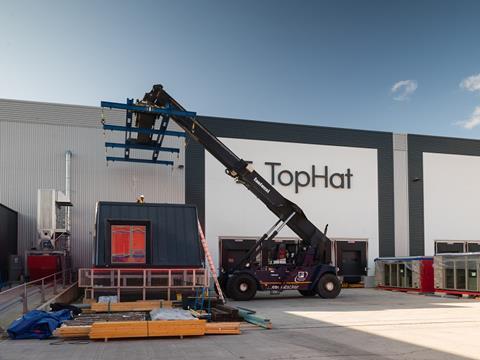Modular housebuilder tells chancellor needs more government support
The chairman of modular housebuilder TopHat has written to the chancellor urging him to scrap stamp duty on homes with the highest energy efficiency ratings.
Carl Leaver has published his letter to Jeremy Hunt ahead of this week’s Autumn Statement in which he suggests making Energy Performance Certificate (EPC) A-rated homes exempt from stamp duty.
He said zero stamp duty for EPC A homes would have “negligible” cost to the government but would “turbo-charge” the volumetric housing sector.

Stamp duty raised £15.4bn for the Treasury last year but currently just 0.2% of homes are rated EPC A.
“We need growth. We need more houses. We need to cut carbon. Achieving these three objectives is challenging and many solutions which help with one will often have negative consequences for the others,” Leaver said.
“Volumetric modular housing…needs government support to get over the hump of broadscale acceptance and achieve the scale which will enable it to make a meaningful contribution to solving the housing crisis.”
>>See also: Could stamp duty reform be the answer to making UK homes net zero?
>>See also: More government support needed for industry to meet MMC housing targets, expert tells peers
He added: “With our current traditional housebuilding sector, there is no chance we’ll be able to build 300,000 homes a year needed to alleviate the UK’s housing crisis.
The majority (78%) of UK consumers would pay more for an energy-efficient home, according to a recent report by Make UK Modular and Octopus Energy.
Last month, Leaver told a Built Environment Committee hearing that it would be impossible to build 300,000 homes each year “without industrialisation of housebuilding”.
Leaver also called for 10% of the Affordable Homes Programme to be ringfenced for volumetric housing.
TopHat, which launched in 2019 with £75m of funding from Goldman Sachs, received a further £70m backing from investors including Persimmon and Aviva earlier this year.


























No comments yet